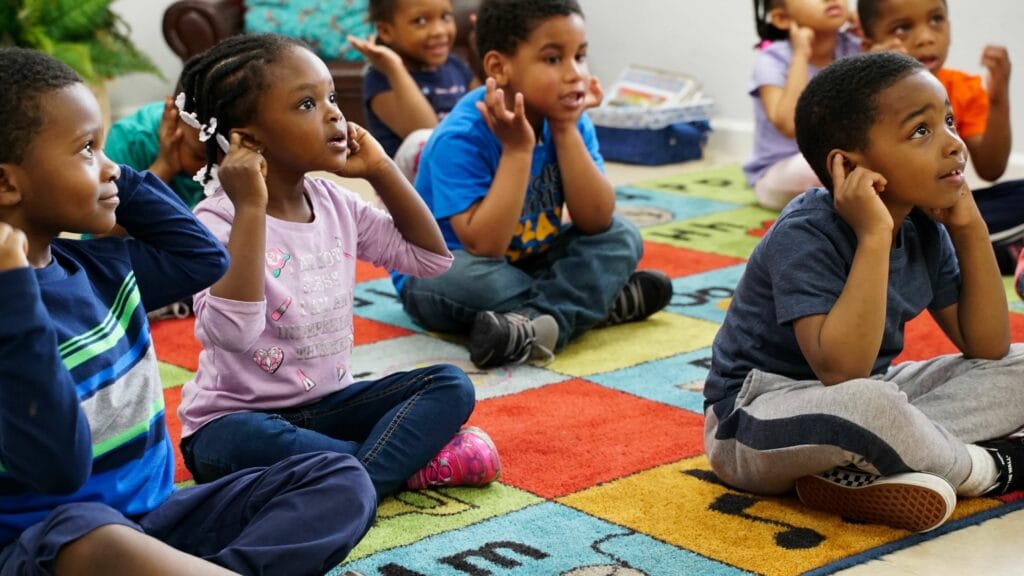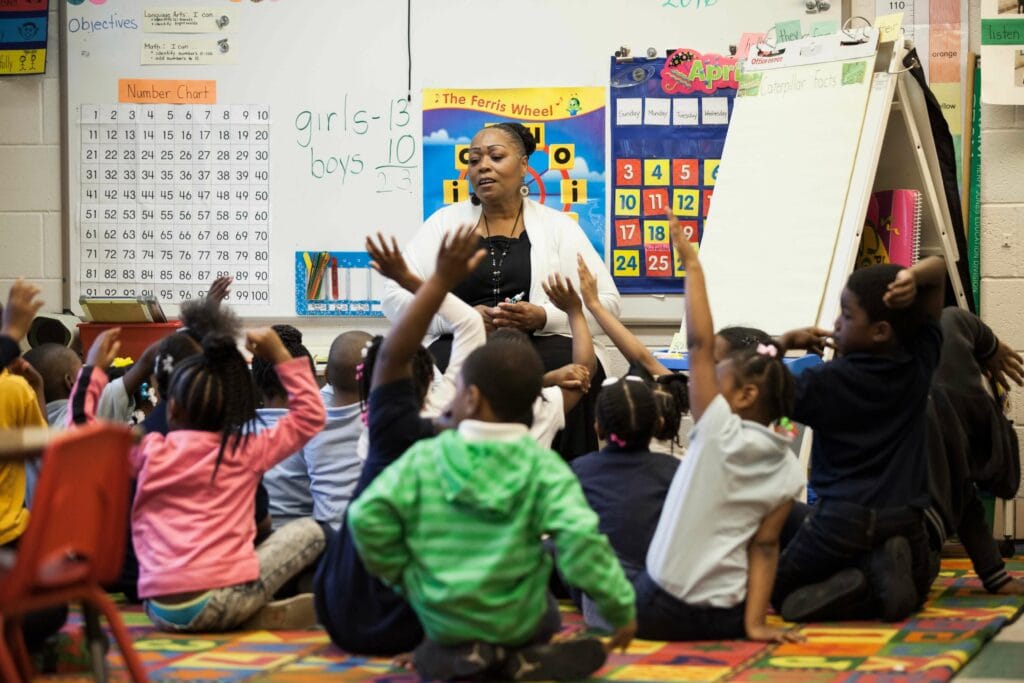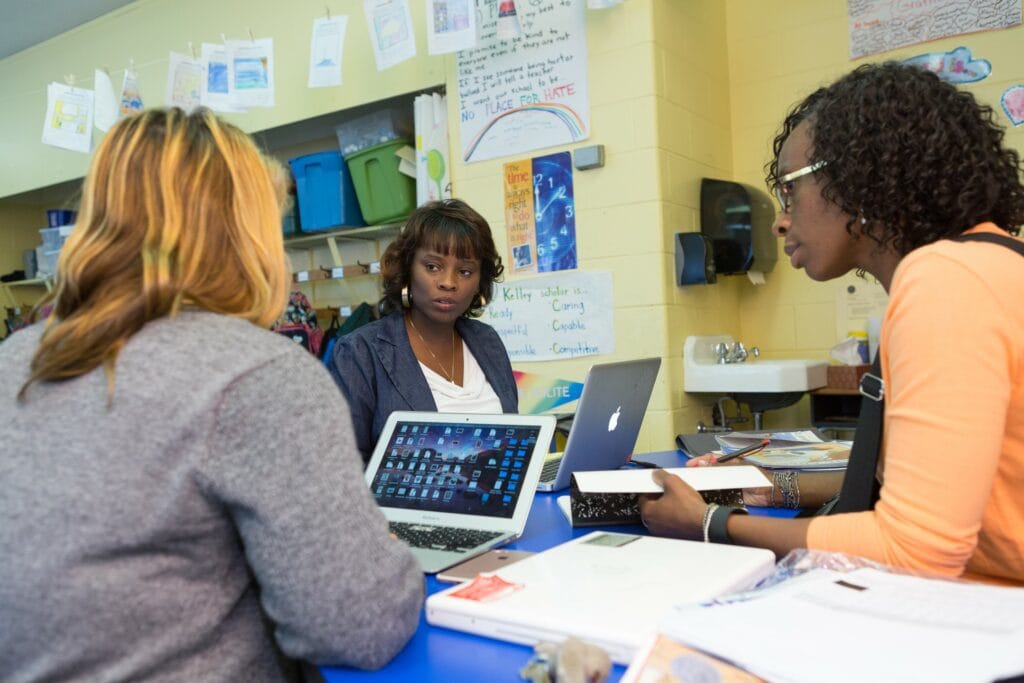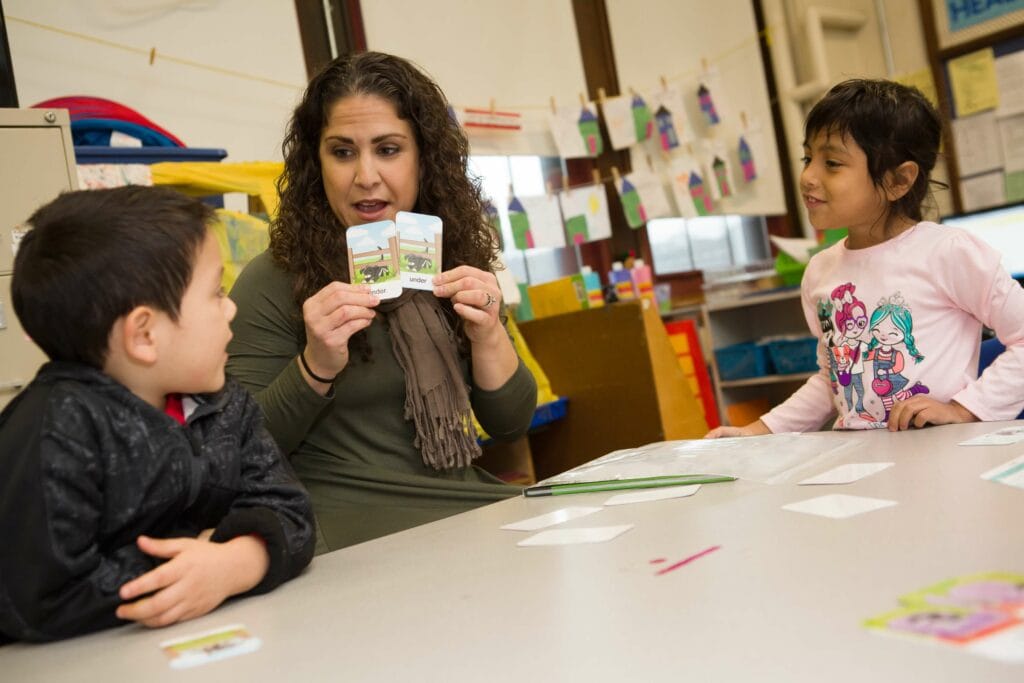


Children’s Literacy Initiative (CLI) believes that early childhood education is foundational to lifelong learning and academic success, especially when classrooms embrace the diverse identities and assets each child brings. Since 2020, CLI has partnered with the Massachusetts Department of Early Education and Care (EEC) through the Early Childhood Support Organization (ECSO) initiative, embedding DEIB (Diversity, Equity, Inclusion, and Belonging) practices across over 150 classrooms statewide annually. Our work at Framingham State University (FSU) exemplifies the ECSO initiative’s potential to create inclusive, asset-based learning environments, especially in communities experiencing demographic shifts.
A longitudinal study by NCES emphasizes the importance of early readiness, linking early academic skills and self-regulation to later academic achievement. Research shows that children who enter kindergarten with strong literacy and cognitive skills tend to outperform their peers, particularly when these skills are supported at home and in school settings.

Framingham State University, a respected institution for early childhood education, primarily served a monolingual, homogenous population until its recent partnership with Framingham Public Schools introduced bilingual Portuguese-speaking students to the classroom. Teachers needed tools to recognize, value, and build upon students’ cultural and linguistic assets in a way that enhanced learning for all.
CLI’s ECSO-supported coaching at FSU focused on fostering asset-based practices that affirm and integrate students’ cultural strengths:

The ECSO partnership has driven measurable gains in early education quality across Massachusetts:
+.042
Preschool
+.40
Toddler
+1.45
Instructional Support
CLI’s partnership with the Massachusetts ECSO initiative is not only transforming classrooms but also driving systemic reform, setting new standards for early childhood education across the state. By implementing data-driven strategies and DEIB-focused coaching, CLI is helping to shape Massachusetts’ educational landscape, ensuring that all students benefit from both equity and quality outcomes.
The partnership with Framingham State University exemplifies the power of asset-focused DEIB practices, as FSU educators are now equipped to create culturally responsive and inclusive environments. FSU has become a model for early childhood programs, showing how celebrating each child’s unique strengths and background can foster truly enriching learning spaces. As these practices expand, CLI’s ECSO initiative is laying the groundwork for lasting, systemic reform in early childhood education across Massachusetts.

Within the first year of implementation, EEPs reported gains on several target outcomes as measured through a study conducted by Abt Associates. Overall scores on the Classroom Assessment Scoring System® (CLASS) for toddler and preschool classrooms increased by a statistically significant amount. Preschool increased overall 0.42 from Fall to Spring across indicators and toddler increased 0.40. Specifically, instructional support quality increased 1.45-points.
“Early childhood programs must recognize and value the diverse racial, cultural, and linguistic backgrounds of the children they serve to promote equitable outcomes.”
Dr. Aisha Ray
“For children to thrive, early childhood environments must be responsive to their cultural and racial identities, building on their strengths rather than focusing on deficits.”
Dr. Iheoma Iruka
Do you want to learn more about CLI’s services, or support our efforts in Early Childhood Education? Schedule a meeting with a CLI team member to explore how our customized support can help you achieve your goals. Let’s discuss strategies to transform education and ensure equity for all students.


CLI’s 15 on Friday podcast delivers bite-sized conversations on literacy and equity in just 15 minutes. Featuring authors, educators, and advocates, each episode inspires[..]

CLI partners with Massachusetts early education programs to strengthen leadership, enhance instruction, and improve child outcomes through coaching and professional development.